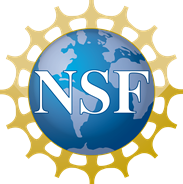
November 26 - December 1, 2023
Boston, Massachusetts
Symposium Supporters
2023 MRS Fall Meeting & Exhibit
Symposium SB09-Biomaterials for Regenerative Engineering
Regeneration of damaged tissues represents a major medical need. A promising approach for development of properly functioning tissue replacements is to utilize engineered biomaterials. Regenerative engineering aims to repair and regenerate damaged or diseased tissues and organs by converging materials science, developmental biology, stem cell incorporation, and clinical approaches.
This symposium will cover interdisciplinary topics such as materials science, chemistry, cell biology, physics, engineering, and medicine. The sessions of this symposium will emphasize material properties and applications of biomaterials (polymers, hydrogels, ceramics, metals, elastomers, fibers, composites, gradients) for regenerative tissue engineering. Additionally, we will cover delivery of small molecules (proteins, peptides, growth factors, drugs, micro/nanoparticles, DNA, RNA), and applications of micro- nano-technologies to control cell behavior. We will also emphasize the importance of translation of bench information into patient care by facilitating discussions between engineers, clinicians, and medical device companies. Professionals from different areas of expertise including materials scientists, members of national laboratories, professors, students (undergraduate/gradate), early career scientists, industry members, biotechnology experts, and medical practitioners will be interested in this symposium. This multidisciplinary symposium will serve towards the objectives of the MRS by contributing to education and training of the next generation of materials researchers, providing opportunities for career and professional development of materials scientists, and helping broaden diversity.
This symposium will cover interdisciplinary topics such as materials science, chemistry, cell biology, physics, engineering, and medicine. The sessions of this symposium will emphasize material properties and applications of biomaterials (polymers, hydrogels, ceramics, metals, elastomers, fibers, composites, gradients) for regenerative tissue engineering. Additionally, we will cover delivery of small molecules (proteins, peptides, growth factors, drugs, micro/nanoparticles, DNA, RNA), and applications of micro- nano-technologies to control cell behavior. We will also emphasize the importance of translation of bench information into patient care by facilitating discussions between engineers, clinicians, and medical device companies. Professionals from different areas of expertise including materials scientists, members of national laboratories, professors, students (undergraduate/gradate), early career scientists, industry members, biotechnology experts, and medical practitioners will be interested in this symposium. This multidisciplinary symposium will serve towards the objectives of the MRS by contributing to education and training of the next generation of materials researchers, providing opportunities for career and professional development of materials scientists, and helping broaden diversity.
Topics will include:
- Hydrogels to control and direct cellular behavior
- Synthetic biomaterials for fabrication of implantable scaffolds
- Scaffolds from biomaterials of natural origin
- Stimuli-responsive polymers and intelligent materials for regenerative medicine
- Rapid prototyping approaches to generate tissue-mimetics
- Biomaterials as artificial tissue replacements
- Cardiovascular biomaterials
- Instructive materials to modulate stem cell behavior
- Micro- nano- technologies for fabrication of tissue scaffolds
- Clinical translation of bench information into bed-side care
- High-throughput approaches for synthesis and screening of biomaterials
- Biomaterials for musculoskeletal tissue engineering
Invited Speakers:
- Nenad Bursac (Duke University, USA)
- Rebecca Carrier (Northeastern University, USA)
- Eun Ji Chung (University of Southern California, USA)
- Jeanine Coburn (Worcester Polytechnic Institute, USA)
- Elizabeth Cosgriff-Hernandez (The University of Texas at Austin, USA)
- Akhilesh Gaharwar (Texas A&M University, USA)
- Riccardo Gottardi (University of Pennsylvania, USA)
- Brendan Harley (University of Illinois at Urbana-Champaign, USA)
- David Kaplan (Tufts University, USA)
- Kent Leach (University of California, Davis, USA)
- Helen Lu (Columbia University, USA)
- Georgia Papavasiliou (Illinois Institute of Technology, USA)
- Murugan Ramalingam (Vellore Institute of Technology, India)
- Julie Renner (Case Western Reserve University, USA)
- Monica Serbian (University of Montana, USA)
- Ramille Shah (Dimension Inx, USA)
- Anita Shukla (Brown University, USA)
- Jian Yang (The Pennsylvania State University, USA)
Symposium Organizers
Gulden Camci-Unal
University of Massachusetts Lowell
Department of Chemical Engineering
USA
Guillermo Ameer
Northwestern University
Department of Biomedical Engineering
USA
Melissa Grunlan
Texas A&M University
USA
Carolyn Schutt Ibsen
Oregon Health and Science University
USA




-2.tmb-mtg_rel_ad.png?Culture=en&sfvrsn=a4240c09_1)

























